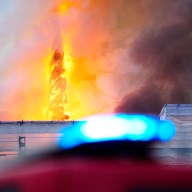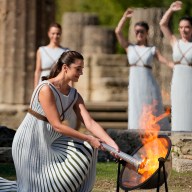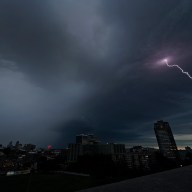TORONTO — It’s the Victoria Day weekend, and the Ontario Fire Marshal is out with a warning about fire safety — especially around fireworks.
Bev Gilbert, a spokesman with the Fire Marshal’s Office, said the fire service doesn’t recommend people hold their own fireworks displays — but instead go to an event run by their municipality.
But if they do hold a neighbourhood display, Gilbert said they should observe some safety tips.
“We would recommend one responsible person be in charge of discharging the fireworks, and that they certainly read the labels before they discharge any firework,” Gilbert said.
Other recommendations include never lighting fireworks in your hand, or setting them off near buildings, trees and dry grass. Authorities also warn that onlookers should be kept upwind from lighted fireworks, and that a water hose or pail of water should be kept close by in case a fire starts.
Gilbert also urged people not to buy flying lanterns, which resemble small, paper, hot air balloons and are fuelled by an ignited wax candle.
The dangers of sparklers are of particular concern for Gilbert, whose own daughter was injured by one.
“My daughter was burned when she was five-years-old because a neighbour gave her a sparkler and she sort of grabbed the end after it had gone out and it was still hot,” he said. “So it’s important to take those and to quickly immerse them in a pail of water as soon as you’re finished with them.”
Many children are badly burned by sparklers and Gilbert suggests that parents avoid giving a sparkler to any child under eight-years-old.
For Canadians heading up to the cottage, the fire marshal recommends taking up smoke alarms and carbon monoxide detectors as well as new batteries — and checking the chimneys for animal nests before using the fireplace.
Ted Rankine, director of the Canadian Safe Boating Council, said sudden immersion in cold water can cause shock, involuntary gasping and deep hyperventilation and a person can quickly lose the ability to swim.
“Far too many people die within swimming distance of safety, such as a boat, dock or the shore, because of the initial effects of cold water immersion,” Rankine said in a statement.













